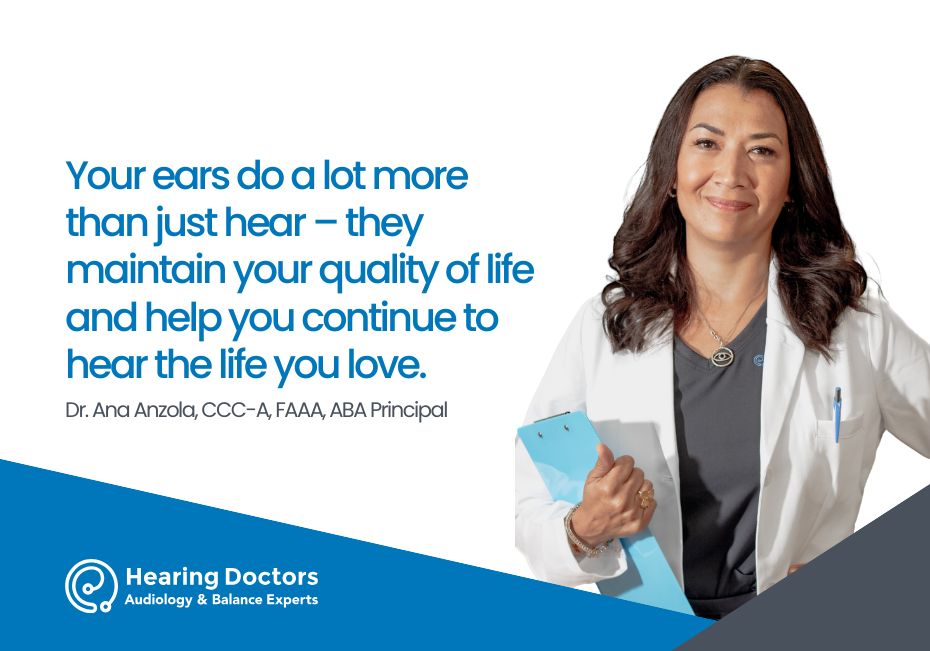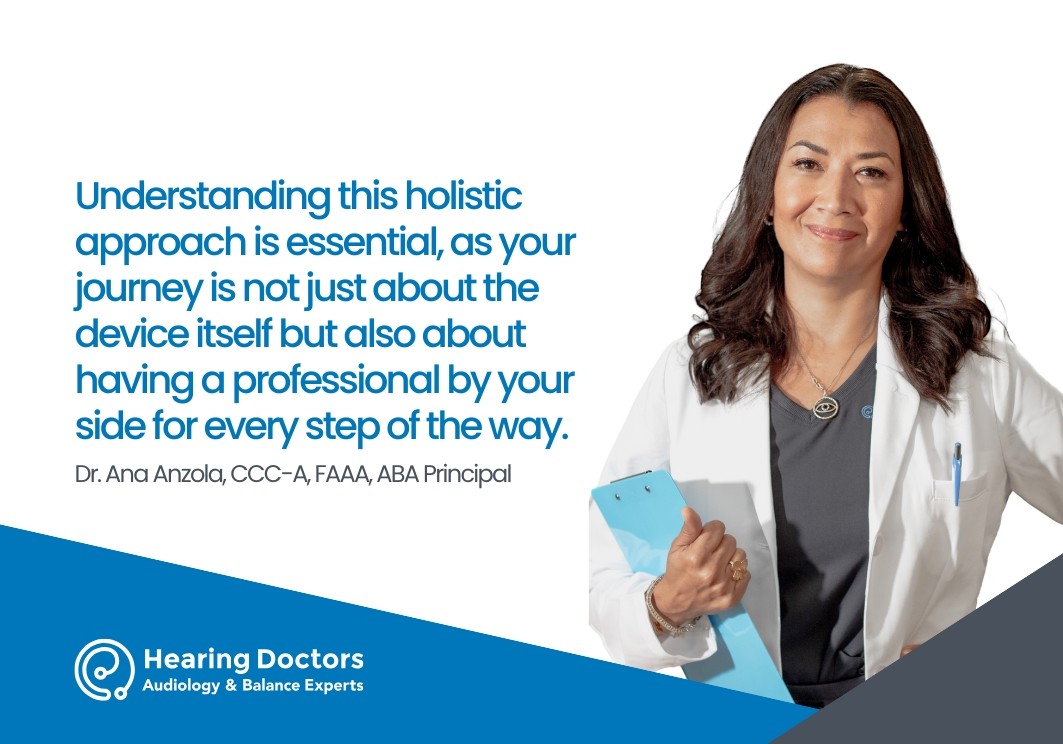Oct 21, 2015
Dr. Ana
Anzola, CCC-A, FAAA, ABA Principal
Reputable audiologists want you to have all the information you need to make the best choices for your hearing health. And they want the opportunity to provide the most accurate information. Here are the five questions audiologists wish you would ask them:
What Are Your Qualifications?
Audiologists are specialists in hearing, and they want you to know the difference between the various types of hearing health care providers so you’re sure you’re visiting the right professional for your needs. Here is a brief description of three main types of hearing health professionals:
Audiologist: An audiologist has a master’s or doctorate degree in audiology, and is trained in the diagnosis and treatment of hearing and balance problems. An audiologist can diagnose and treat hearing loss, safely clean the ear canal, fit hearing aids and program cochlear implants. While audiologists do not perform surgery, they are trained to identify medical issues, which they refer to an ENT.
ENT (Ear, Nose and Throat Doctor): A medical physician who specializes in illness and diseases of the ear, nose and throat. They have completed medial school and specialized training in their field, and can perform surgery on the ears, and treat things like ear pain and ear infections. ENTs may fit patients for hearing aids as part of their practice, but it’s not their specialty.
Hearing Instrument Specialist (HIS) or Hearing Aid Specialist (HAS): These professionals are qualified to test your hearing and dispense hearing aids, but they generally cannot diagnose hearing conditions.
How Much Do Hearing Aids Really Cost?
Audiologists are happy to share information about the cost of hearing aids, which typically fall somewhere between $1000 - $5000. It is best to speak directly to the audiologist instead of simply looking online or talking to a friend. Every person has their own unique needs, and your audiologist will be able to tell you the cost for the best hearing aids for you.Aren’t All Hearing Aids The Same?
All hearing aids are certainly not the same, and your audiologist wants to talk to you about why. Just like medications, one size doesn’t fit all when it comes to hearing aids. Depending on the nature of your hearing loss, some brands and features may be more beneficial for you than others. Talk to your audiologist about what is best suited for your hearing needs, and work together to find the best hearing aids for you.What’s Your Aftercare Plan?
A reputable audiologist will have a thorough aftercare plan that includes follow-up appointments to fine-tune your hearing aids to provide the best possible sound. They will also offer a variety of online and offline resources to help you adjust to your new hearing aids. Getting new hearing aids is just the beginning of your journey to restore your hearing. In many cases you must also retrain your brain to regain lost sounds. Ask for details about the aftercare plan to rehabilitate your hearing.Can I Get Emergency Assistance?
If your hearing aids malfunction or get lost or damaged, you may need immediate assistance. Ask your audiologist if they offer emergency assistance when you need it most - on the weekend or after business hours.
We are available to answer all your questions, before or during your appointment. If you have any questions, please call us at (703) 942-8110 and we’d be happy to answer them for you.
Popular Blogs

Jun 3, 2025
Dr. Ana
Anzola, CCC-A, FAAA, ABA Principal
Understanding Types of Hearing Loss: Sensorineural, Conductive, and Mixed

May 21, 2025
Dr. Ana
Anzola, CCC-A, FAAA, ABA Principal
What Impact Is Artificial Intelligence Having on Hearing Aid Technology?

Apr 28, 2025
Dr. Ana
Anzola, CCC-A, FAAA, ABA Principal
Do You Think You’re Too Young for Hearing Loss?

Apr 15, 2025
Dr. Ana
Anzola, CCC-A, FAAA, ABA Principal
The Best Hearing Aids in 2025: Insights From a Doctor of Audiology


